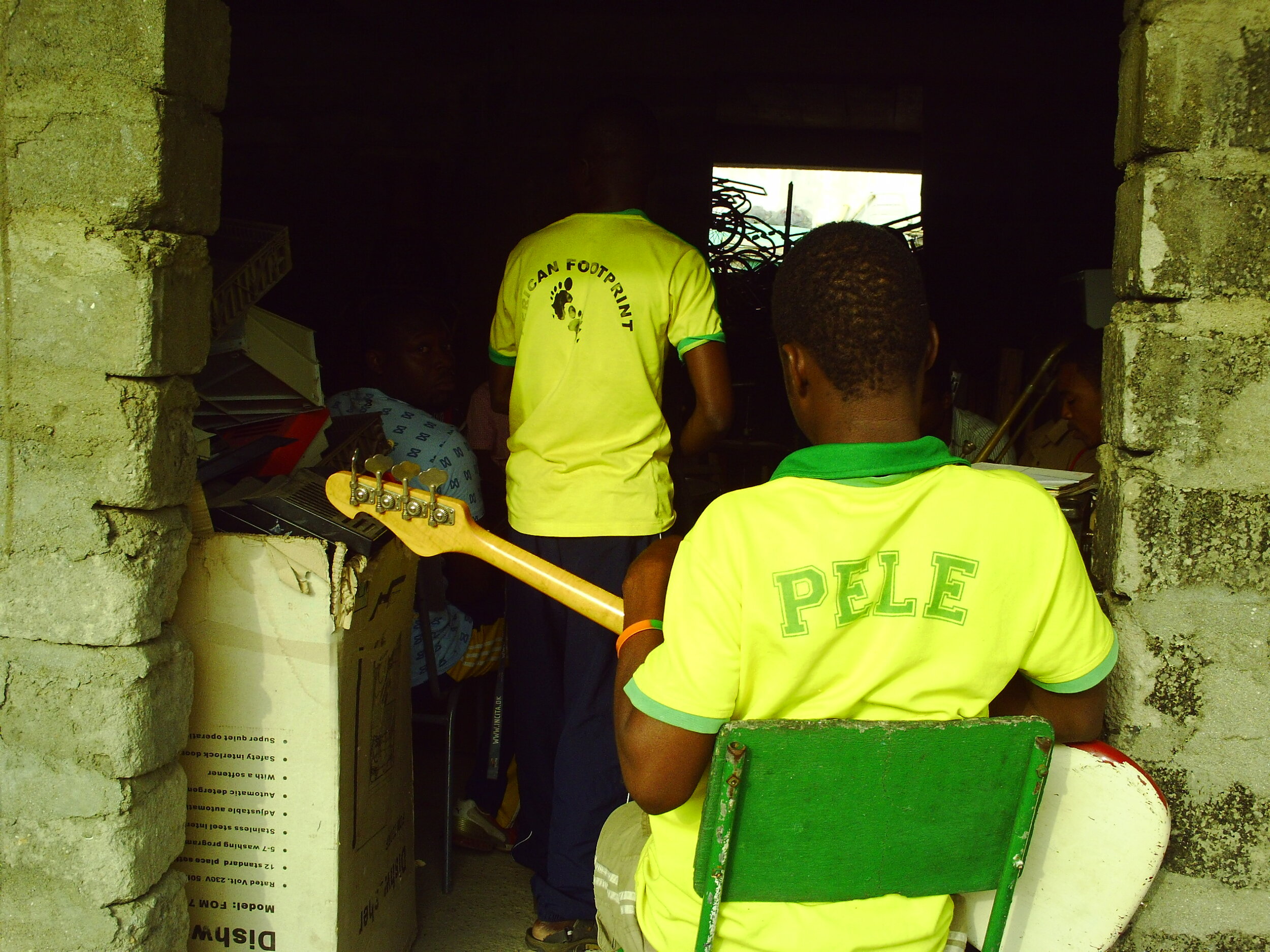It's an honor to release this record from African Footprints International. This record was recorded at in Cape Coast Ghana, where you are the hub of the music scene, and recorded by the founders of Lightning, before they had even started Lightning. For us over here at Lightning, it really embodies some part of what Lightning is supposed to be, which is part label, part umbrella for music collaboration. And this is such a special record, because you have a mission of bringing people together, both in music, but in a more inspired general sense as well and Lightning certainly owes some of that inspiration to you. We are very excited to discuss some aspects of your vision, your non profit and your music to give our listeners the context of the music.
Many years ago, you and Seth Olinsky met at Roskilde and performed together, that is how you two originally met correct? Can you tell us about AFI and where the band / non profit was back then?
Yes. I Samuel Kweku Addison met Seth Olinsky at Roskilde Festival and we performed together.
Now I share a bit about African Footprint International and how it all started.
In the year 1999 I started a computer center in a school that I was teaching called Academy of Christ the King. There came some challenges in connection to who can join and who can not so I decided to go out of the school to enable me help the students in the school and also people from the community as well. After moving out for some time gave birth to the dream of African Footprint International.
African Footprint International is a non-governmental, non-profit, non-political and non-religious organization, which reaches out to disadvantaged and disabled people to acknowledge them and unite them with advantaged and able people
The vision of African Footprint International is to bridge the gap between the less privileged and privileged, the physically challenged (disabled) and able people and unite them through African traditional music, dance, drumming, story telling, theatre for development, international music and all possible genres as well as broad informal education courses.
Some of our goals are to make members and people functionally literate, self confident, productive, hope and to help them acquire the necessary skills to cope successfully with the fast-growing modern world.
African Footprint International uses drumming and dancing as a means to do away with social barriers, and as a way for people to meet and co-operate despite differences in social situation and heritage.
African drumming and dancing, performed by both deaf and hearing people, is crucial to the work of African Footprint, which perceives these practices as:
a. a means to remove barriers between socially marginalized groups
b. a way to make the physically challenged (disabled) realize that disability is not inability
c. a way to acknowledge the many unearthed talented drummers and dancers of our generation
d. a means to create happiness, hope, faith and meaning in the other wise hard and poor lives of the disadvantaged
e. a way to draw attention to the ideas and reasons behind the group.
When Seth and Ali came over to do the recording, they were really moved by how each song featured a different traditional rhythm. Can you talk about some of the different rhythms and their lineage and your idea to bridge that with modern music?
The music we made with you is a complete story – a full journey of making footprints so all songs have background and a story and why it was made as it is.
The basic aim is because I am using the music, dance, story telling and the arts to bridge gaps. I therefore carefully make songs and performance to give the effect of our vision.
We say in Ghana “every word has its owner,” so it is that every song has its target to reach. But the power in music is that it reaches in a multiple effect. Meaning music answers multiple different questions with one same song out.
Like music being played for a group of dancers. You will see that all dancers might or will probably have different movements as their response to the same music, a way to explain that same music with multiple answers to its listeners.
I will explain the background of one the songs. Most of the songs came from a situation that I was addressing. For example San Bra Song track was made to bring hope and life again to both listener and the singer. So it has a spiritual drumming style that we use in Ghana for the sick to get healing. One will ask why not soft music but it is rather vigorous instrumentation that will wake anything that is falling to sleep or down into slumber to wake up and run with joy and happiness.
Music is interpreted different by the beholder, therefore we try to reach by adding other music vocabs which is the beat or text into our music and that makes it international and to be easily identified. Our tours and experience confirms that.
All the songs and rhythms and patterns have a story and a reason to why it was selected and used to that particular song.
Can you tell us some of the drum arrangements for the record and how those relate to traditional drum combinations?
We played some of the following drum arrangements on the recordings.
1. Asafo - a worrior chants (with the group that came from town to help)
2. Asafo (Awayo) - a traditional spiritual rhythm for those who are broken (San Bra)
3. FontomFrom - a royal music for kings and queens (Big drums – only drumming)
4. Djembe music - rhythms mostly played in the French speaking countries. All Africans play djembe because of history and migrations of people.
5. Abogya rhythm - The Ewe clan in Ghana - A complete story of the rhythm. (Take me home)
We remember recording Asafo, with some of the local fisherman in the village, can you tell us about that song?
That Asafo songs are sang by the Warrior groups of clans in Ghana. The songs tell about their strengths and achievements. Telling their braveness and provoking enemies and opponents to either fight or flee away from them.
It’s a kind of war mood as the Asafo group is considered as the military and protectors of the town. It also talks about situations and developments important to the community and welfare of the town.
We remember recording the master drummers Abraham and other master drummer.. on shaker and we were so moved, by how they could really make the shaker dance, in a way that a less trained drummer, playing the same rhythm couldn’t - Can you tell us what it takes to train to be a master drummer?
To be a master drummer, you will have to voluntary go through carrying master drummers drums and serving the master drummers that you will like to learn from. We often learn and become our dream by impartation and services by the person needing it.
Drummers are not sat down and taught like we do in school. I will say that, in a way it’s the one who wants to be master offerings and services that earn him the talent and the ability. A master drummer teaching somebody to be a master drummer will just be the finishing part. It is because the person wanting to learn will pick it up master drumming talent through his services to the master. So ones commitment and services will determine his skills and playing as a master drummer. What goes in determines what comes out.
We often start learning from the bell, which is the most difficult part but believed to be the simplest. Of course that keeps the whole rhythm and the music together because that is the time line. So people who get involved start from the time line, which is the bottom instrument. When they pass the test, they can hold any music and rhythm together and play with any instrument.
African Footprints International has a dance troupe and non-profit side as well. Can you talk about teaching the deaf to drum and dance?
If a deaf person is called disabled but can dance to our intricate rhythm and non hearing impaired can not dance to the same rhythm then I will always say that the word disability should be re-defined.
That is why I say that until you learn you are disabled, but it takes learning to be able. Yes until we learn we are all disabled.
African Footprint has chosen hearing-impaired people as its starting point to use as a case study in bridging gaps between the physically challenged people and abled people.
Hearing-impaired people have extraordinary abilities, which nobody expect. Experience tells us that hearing-impaired people are able to drum and dance despite their disadvantages. These abilities have functioned as an eye opener and a great motivator to both impaired and non-impaired people who work together in African Footprint.
The hearing-impaired ones are joined to Footprint on a purpose and I am happy to say it served the purpose of doing it. They have served as a great source of inspiration in the development of African Footprint, and have encouraged the organization to expand its scope, recalling other disadvantaged people who await their chance to be acknowledged for their abilities and talents.
Can you tell us about your musical process?
Basically, I do the core idea – text formulating, rhythm and how it should go with the story to address a situation. The song is then prepared and halfway made. This will then be brought up to the group for the members to play it as they hear it by feelings and spirit. That makes the music as it is and become a multiple effect element because it is cooked by many feelings.
Just like a child who has been brought up by different persons or different dialects. The child automatically grows up and becomes international and possesses different abilities. That goes the same for the music development, which is born by many different feelings in producing. That gives it in the end the spirit the audience will feel and receive through the multiple effects.
We really love the song Remember. Can you tell us about your inspiration when writing that song?
REMEMBER (song)
The sun will go down,
Because we have desire
For a brand new day
Why then we fight and doubt
Days ahead of us
Are still unknown
So please do remember
O that I love you.
Most of us will like to see the next day and move forward but don’t want to go through darkness. They never want the sun to go down. Challenges come to us because we have desires to grow and go forward and also see new day. The sun will have to go down on you for the darkness to pass, this gives you the opportunity to be in the next new day. We are in a way prepared and repaired when the fall comes and the darkness covers us. That is the time we all go through our peculiar odds and helps us to see the next day.
To start anything generally we will starts from bottom. So a fall is not really bad because we all have the least and when we fall, we fall to the least, we then are able to locate the start and the beginning - that is when and where we arrive in the new day. (More to say on this)
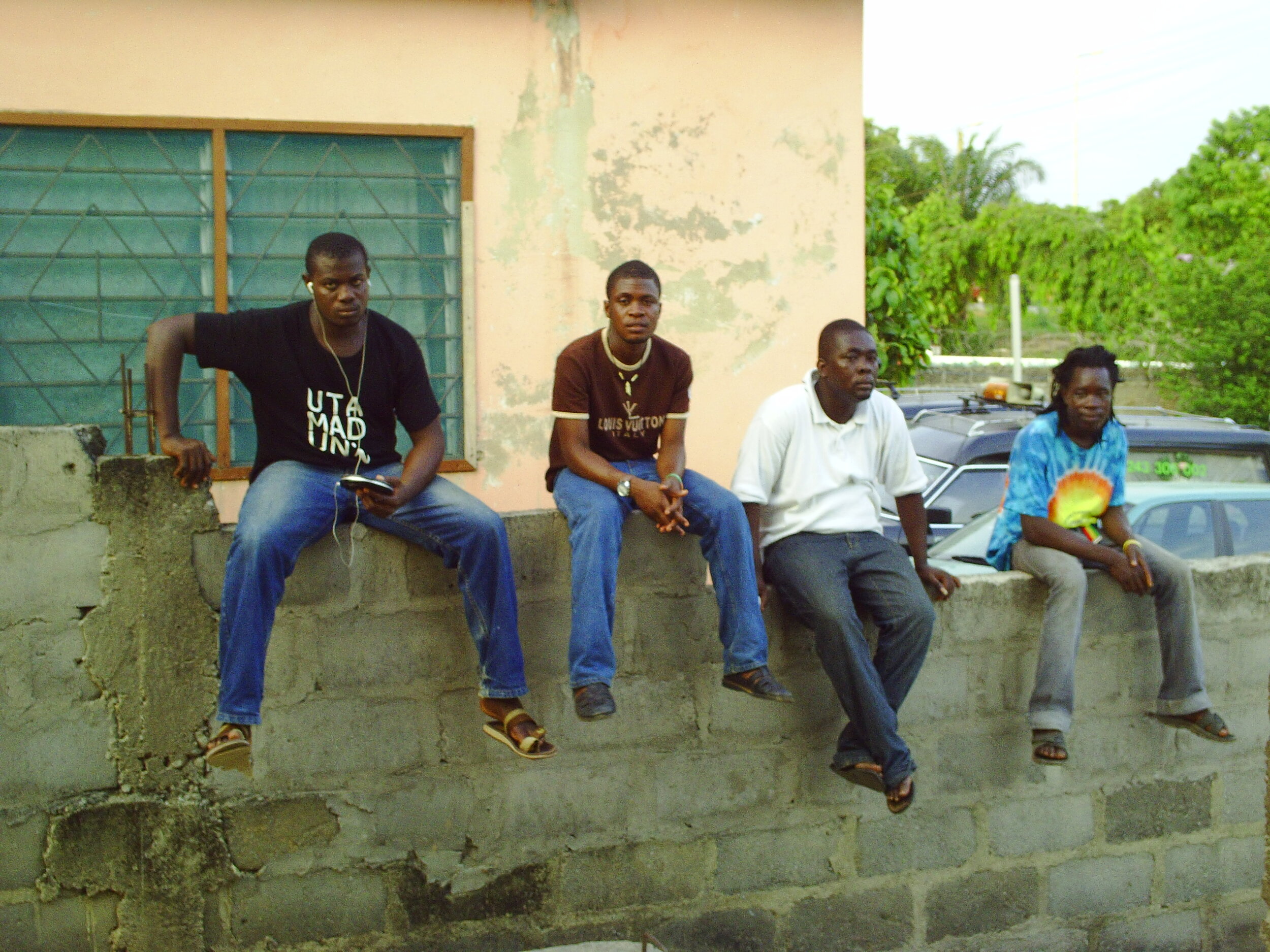
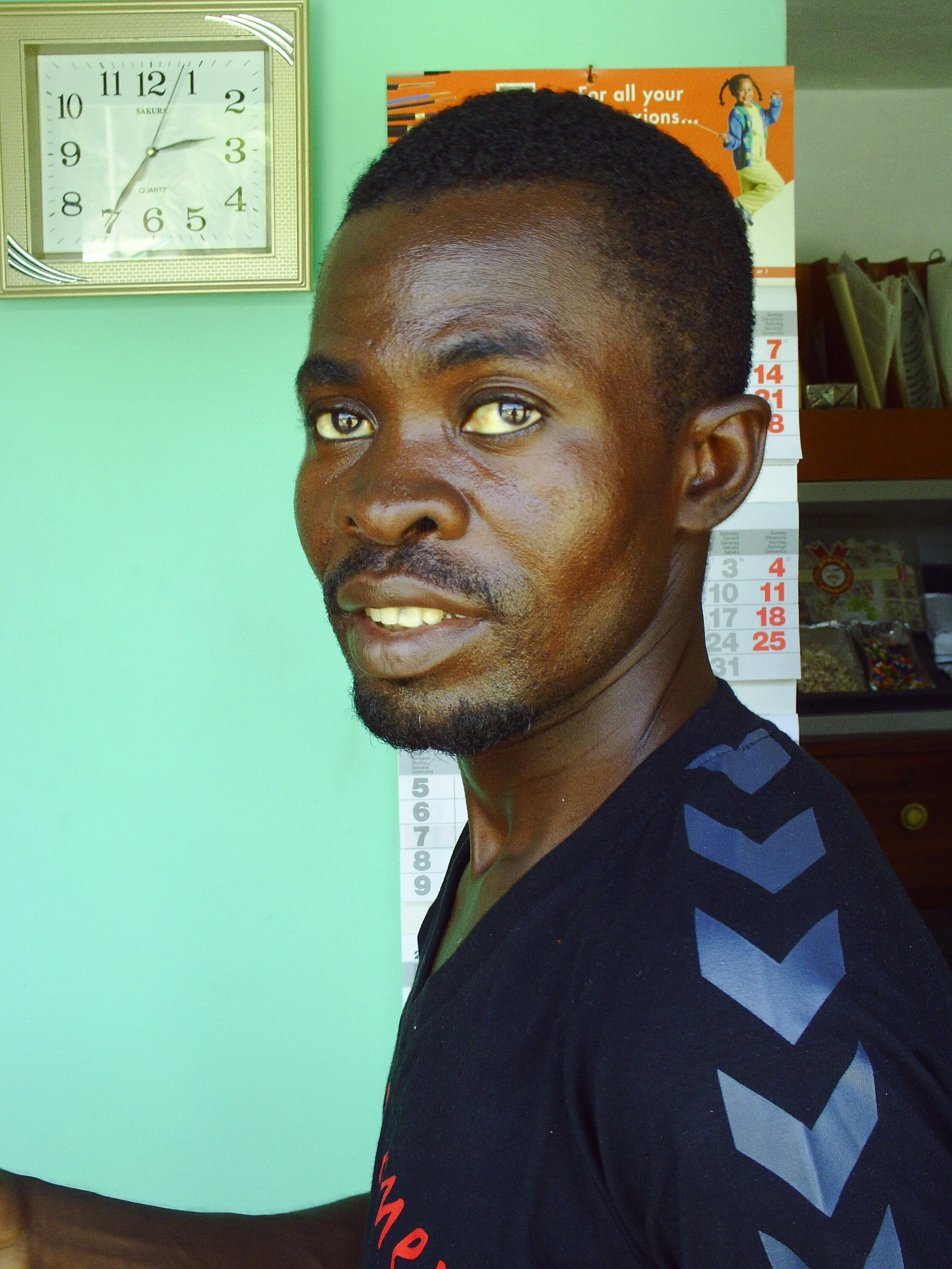
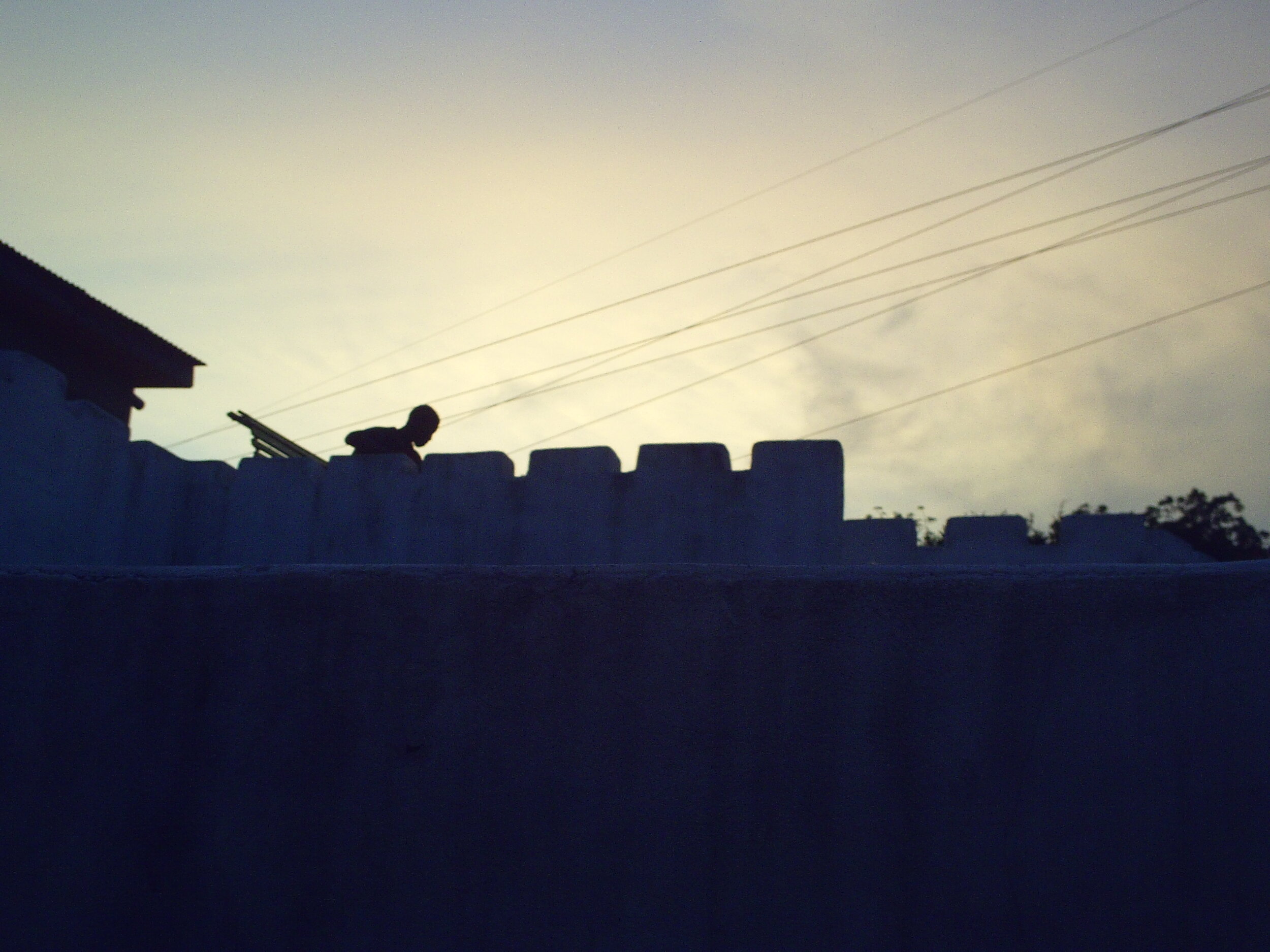
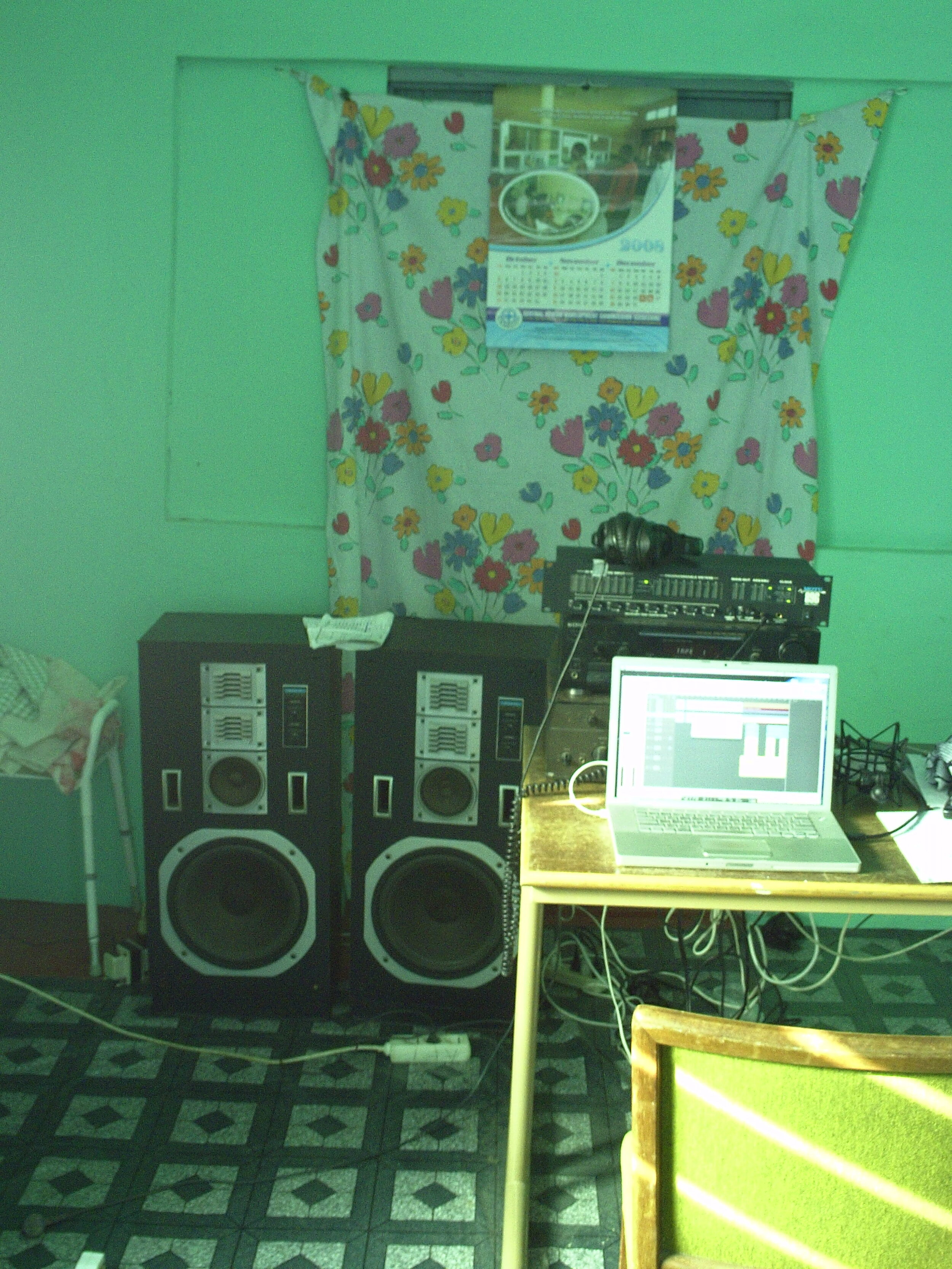
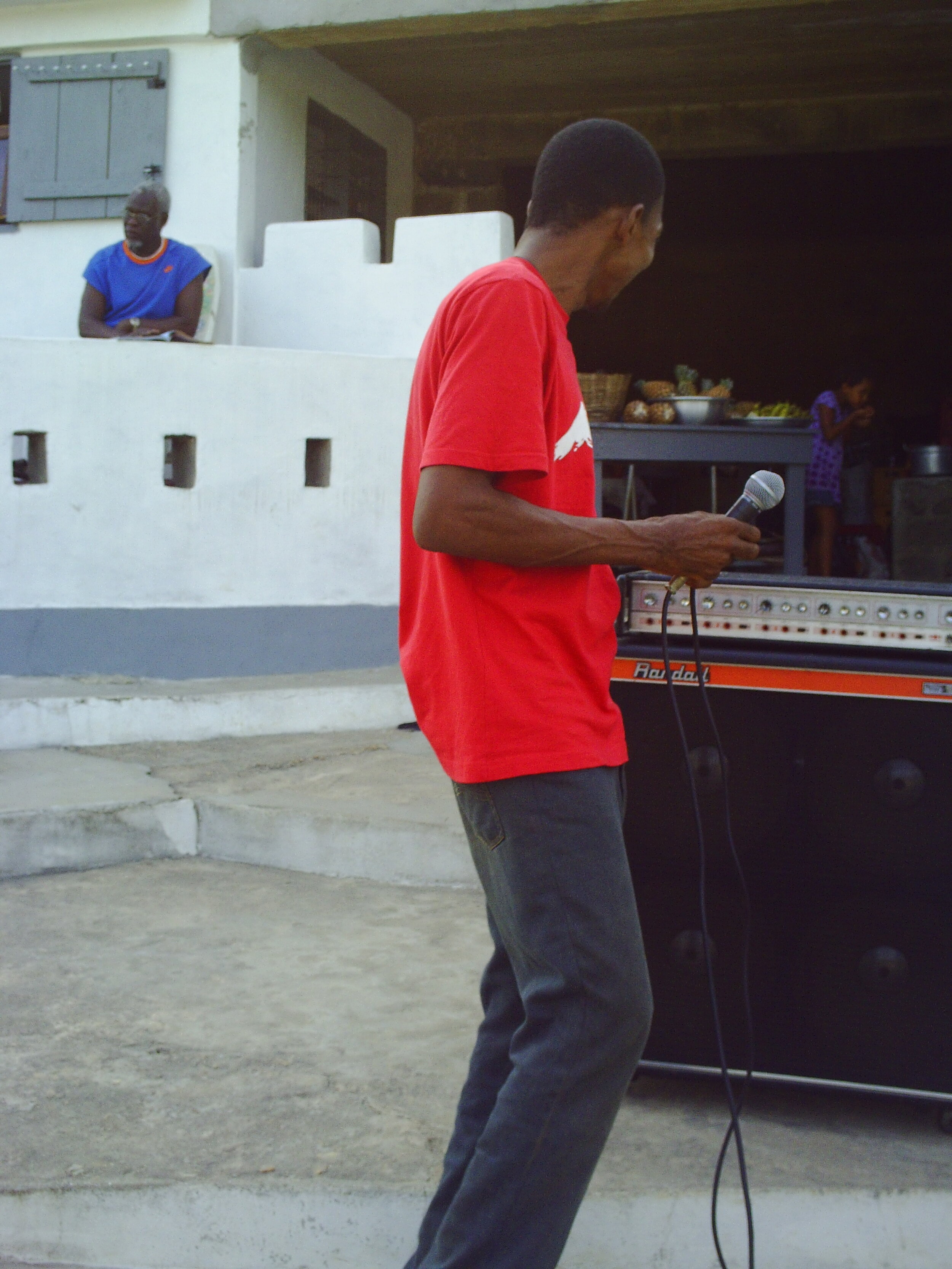
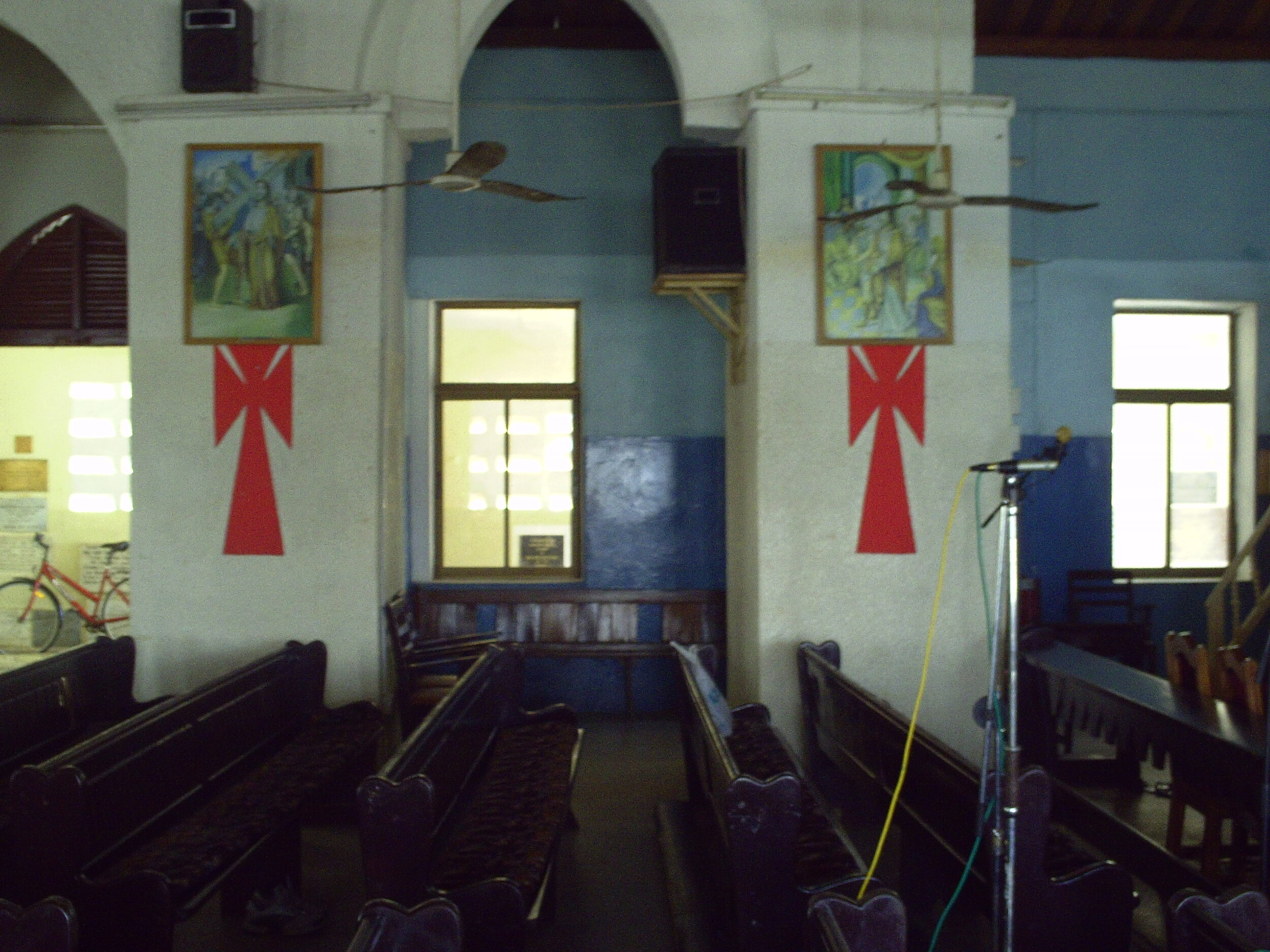
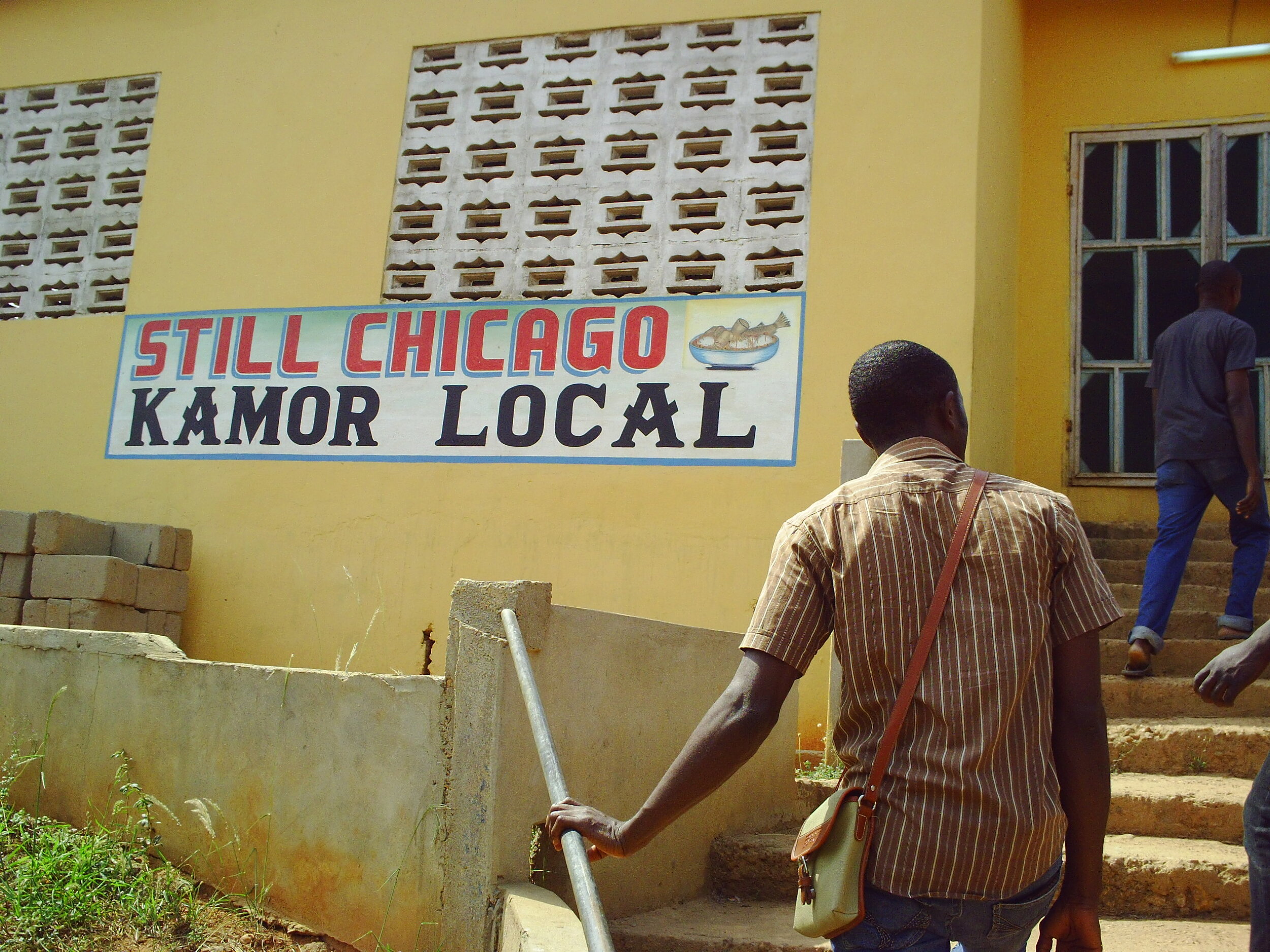
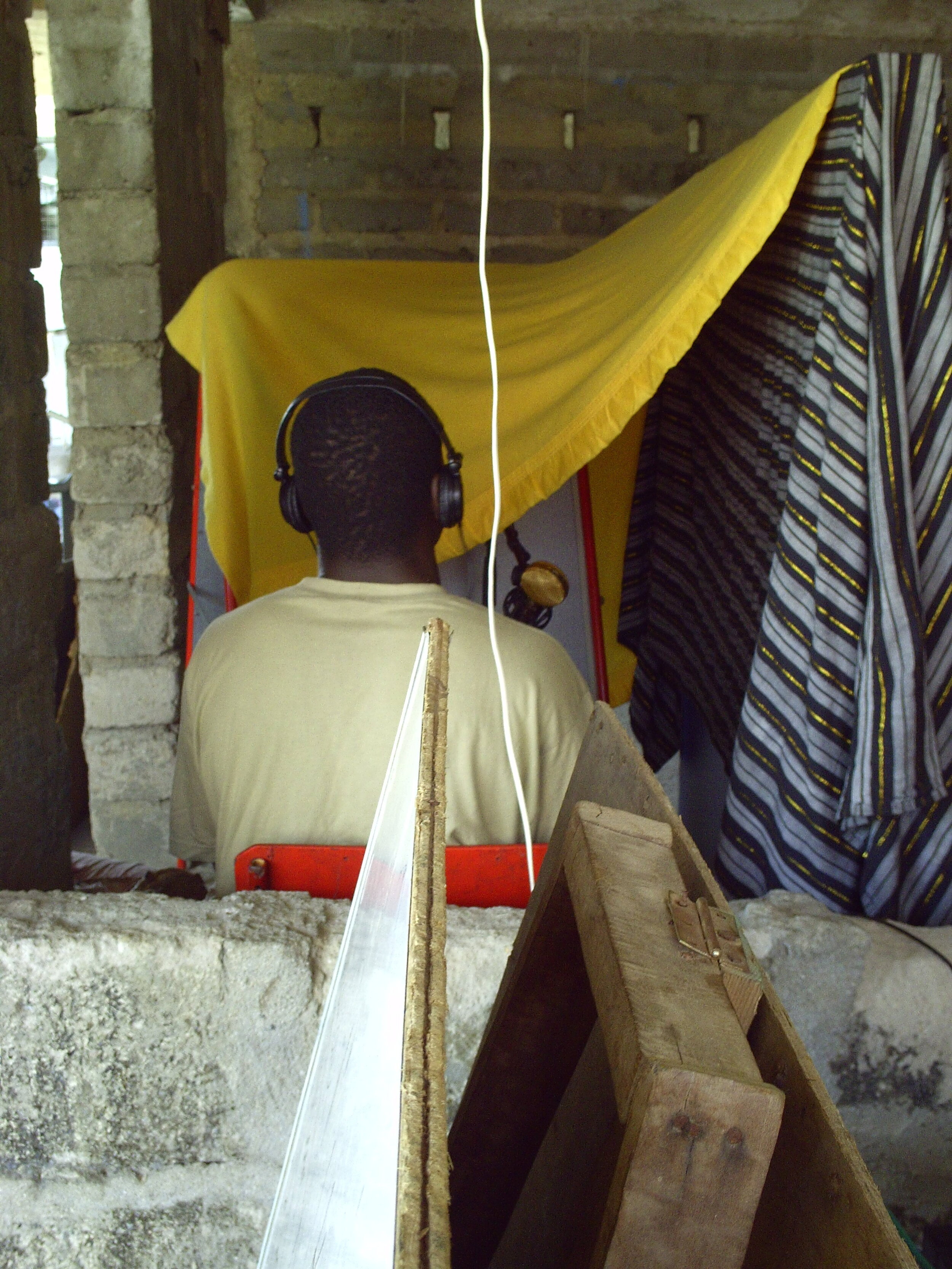
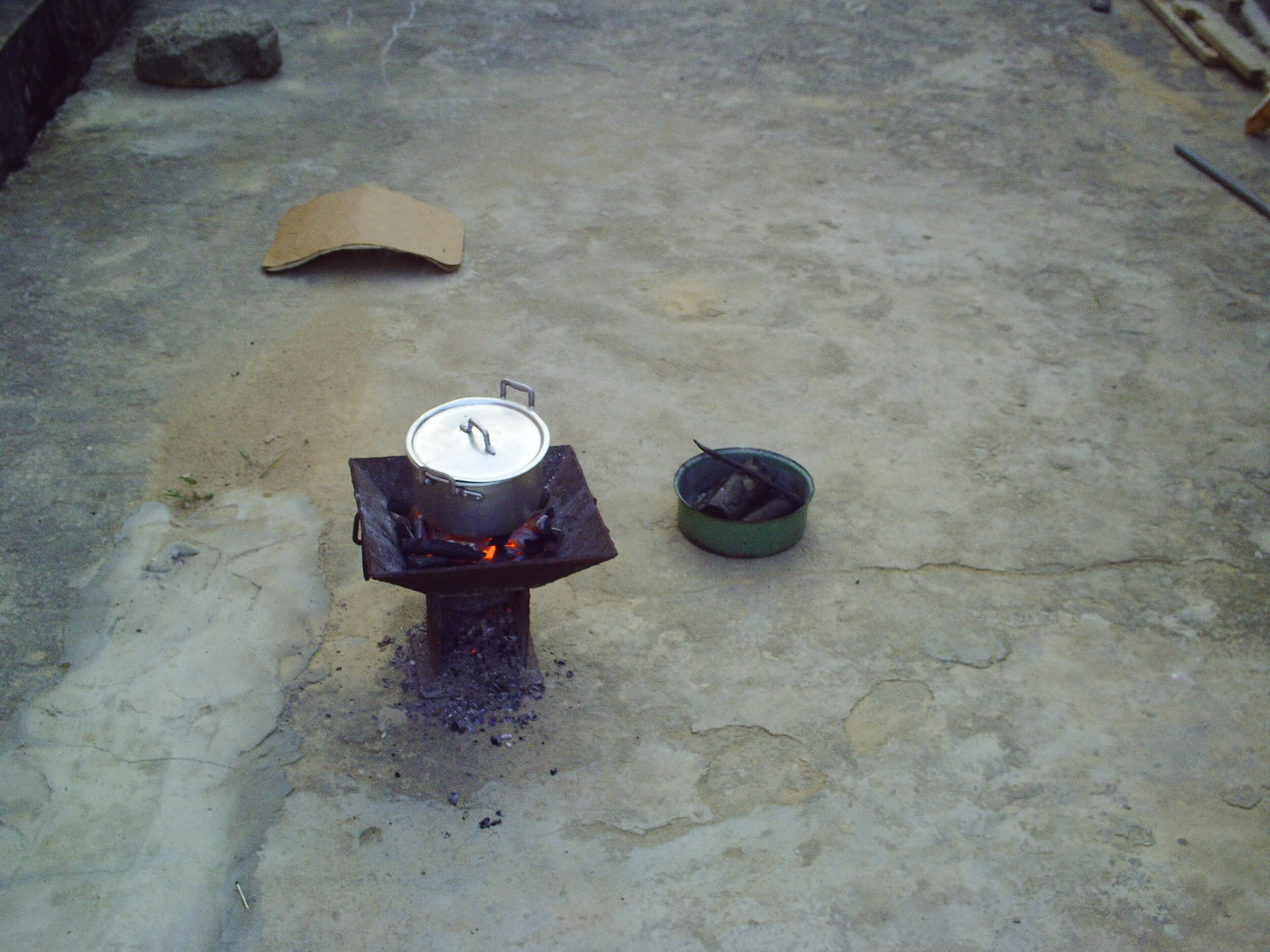
You as a person, inspire us daily, with your ability to live and communicate in many different worlds, can you speak to bridging those worlds musically? Any advice to those of us who inspire to have broader borders?
We should remember to Move on as always. This is important because life is a journey meaning it’s a movement of people. And movement is always time. This is what inspired me to write the Take Me Home and Move On songs.
Like I said before our day will turn to night to break the spell for your light to come through in. And if we can remember that it is our choice, that put us on and it is our moves, that leaves our footprint.
So you move on, and you got to move on to turn your History alive, if you move on you can re-write your life and history, if you move on you can edit your past.
Good to stand up but that makes you to stand on your footprint but moving on makes footprints and gives you a story. Then you will have a story that can be or shall be told.
Give yourself the time and will give yourself the chance and a little time to be what you want.
All is by time and the strong will be soft, patience and haste are time. Love comes by time, the heat comes by time and all comes by time. Life is on time, beats from the heart is on time, great things take time and ticking time can scare us apart but if we stay with time we will be free with time.
All we need is hope, patience and time to find us on time.
You have been part of much philanthropic work, can you talk about some of the projects you have been able to pull off?
Through the music we have been able to build child development centers for the needy ones in Ghana. We also built a clinic for a deprived village in Ghana. We have helped many schools and individuals in donating computers, school equipment, hospital equipment and many more as a way of bridging gaps between privileged and the less privileged ones.
We have also affected many in different parts of the world with music, dancing, drumming, workshops, story telling and concerts also advocating and soliciting for help for the needy example like helping to fight Leprosy in whole Africa and also proving to the world that disability is not inability but it takes learning to be able.
We will never forget one night, after recording, while eating kelewele you told us that "We (universal) are the architects of time". We have quoted you many a time with that, a sentiment we all need to remember... can you elaborate on that sentiment?
Let me use the common idea interpretation of time to explain this.
We are the time. For a life to begin is determined by the beat. The woman finds the beat and if they hear the beat, which is on a time measurement, then life is up and alive. Then a woman is pregnant
One day my brothers’ children came to visit in Denmark. They needed to board bus to another town. As soon as the bus left, one of the children said “dad but the bus is not full why is it going? Then the father said its time to leave. This was in Denmark.
In Ghana if we decide to go to Detroit for example at 9.00 and we all gather and are ready at 8.00 we will hit the road or if we all gather at 10.00 then we hit the road. We actually wait until we are all there and ready to go, then we hit the road. So it could be that by 9.00 it is left with few ones on the way to reach for departure. They will wait until they are all set and ready. That is actually when their time starts. African time will begin from when they are ready and all are ready. That is why people say “African Time”.
In Africa there is no time. Time is when we are ready and are all together to move. So they can be an hour before time or after and are driven by patience.
So time is measured as when we are ready because we are the time. Without us there is no time. Time starts with us. That is the explanation of when life is to be born.
So there is nothing like ON or OFF time. All time is time and what matters is when its ready and started, that will determine if its on or off.
WE ARE THE TIME.

